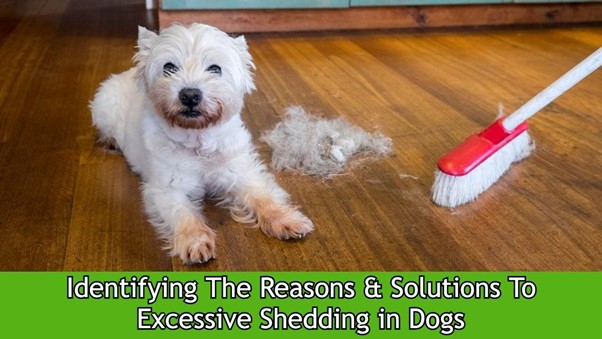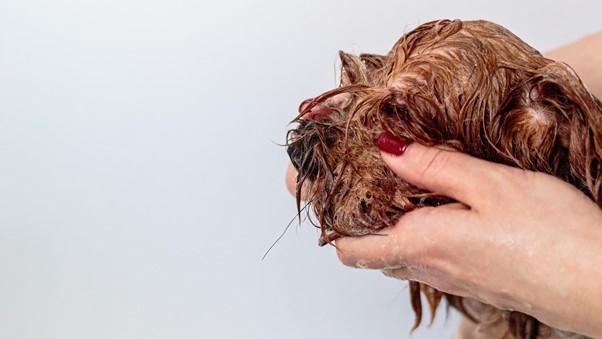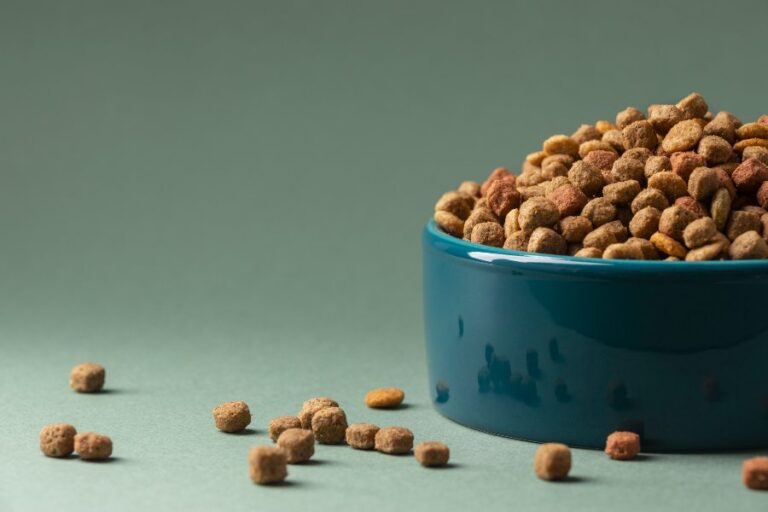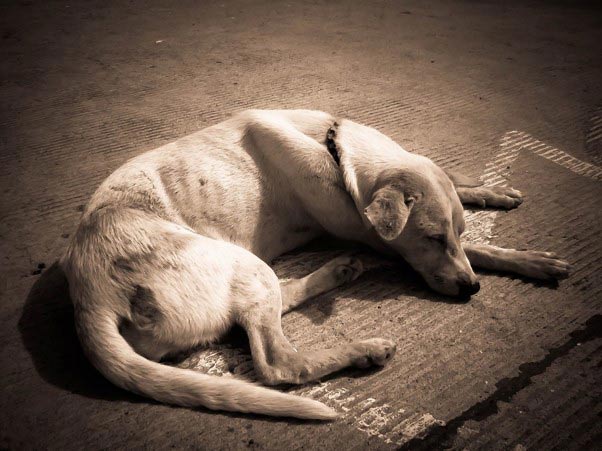How to Mitigate Excessive Shedding in Dogs
- Last updated on April 6, 2023
- By: Caroline Stowe
Do you have a furry family member that leaves a trail of fur wherever they go? Well, it’s time to get a handle on shedding so you can keep your pet healthy and your home clean.
At first, it may seem like an impossible task to reduce shedding in dogs, but with the right information and patience, you can help manage your pup’s coat shedding.
In this article, we’ll discuss the causes of shedding in dogs, dietary changes and grooming tips to reduce fur loss, as well as some home remedies for treating excessive shedding.
Causes of Dog Shedding

To start off, let’s take a look at the different causes of dog shedding.
Seasonal Changes
Firstly, seasonal changes can cause increased amounts of fur loss. As the days become shorter and the weather starts to get cooler, dogs will start to develop a thicker coats in preparation for colder temperatures. This is a natural process that helps to insulate them against the cold.
When spring rolls around, they shed their winter coats which can result in more fur on your furniture and clothing.
Age
Age can also be a factor in dog shedding. As dogs age, their fur may start to thin or become brittle due to hormonal changes related to aging.
This could lead to increased amounts of shedding as their fur breaks down more easily and falls out faster than normal.
Additionally, older dogs may tend to groom themselves less often which could add to the problem of excess shedding.
Stress & Anxiety
Stress & Anxiety can also lead to excessive shedding in dogs. When a dog is stressed, their bodies produce more cortisol, which can disrupt the normal fur growth cycle.
This can cause the hair follicles to shorten, resulting in a shorter coat that sheds more frequently.

Poor Diet & Nutrition
Poor diet and nutrition can also be a cause of increased shedding in dogs. A poor diet that lacks essential nutrients such as vitamins, minerals, fatty acids, and proteins can lead to a weakened coat that won’t hold in the fur properly.
Additionally, a lack of hydration can impact the health of your dog’s skin and coat, making them more prone to shedding.
Hormonal Imbalances
Hormonal Imbalances can be a cause of excessive shedding in dogs. Dogs produce many hormones that regulate their health and stress levels, including thyroid hormones, cortisol, and testosterone.
An imbalance in these hormones can disrupt the normal fur growth cycle which can lead to increased amounts of shedding.
For example, when the thyroid gland produces too much or too little of the hormone thyroxine, it can cause an increase in shedding. Additionally, a high cortisol level can lead to an increase in fur loss as well.
Medical Issues
Finally, some senior dogs may develop medical conditions such as Cushing’s Disease which can contribute to excessive grooming and hair loss.
Grooming Habits To Help Reduce Dog Shedding
There are some grooming habits that can be useful to reduce shedding in dogs.
Brushing
One of the most popular home remedies to reduce dog shedding is frequent and thorough brushing.

Regular brushing helps distribute natural oils throughout the fur, resulting in a shinier, healthier coat.
It also helps remove dead hair and dirt that can accumulate on the surface of your dog’s coat.
Additionally, regular brushing will help you identify any areas of concern and can even help reduce the amount of loose fur that ends up on your furniture and clothing.
Bathing
Regular bathing is another great way to manage shedding in dogs. Not only will it help remove any dirt, debris, or allergens from their coat, but it will also help keep their skin hydrated and nourished.

When selecting a shampoo, look for one that is specifically formulated for your pup’s coat type and skin sensitivity.
Dietary Changes to Reduce Shedding in Dogs
One way of managing your pup’s shedding is by making dietary changes. It can be an effective way of reducing shedding in dogs. The foods used to reduce dog shedding include;
Fish Oil
Fish oil is packed with omega-3 fatty acids which help to reduce inflammation and promote healthy skin and coat.
Coconut Oil
Coconut oil is rich in lauric acid which helps to nourish the skin and hair follicles, providing your pup with a healthier coat. We recommend using coconut oil that is certified organic.
Flaxseed Oil
Flaxseed oil is an excellent source of omega-3 fatty acids which help to promote healthy skin and coat.
Eggs
Eggs are an excellent source of biotin, a vitamin that is known for promoting skin health and reducing shedding.
Sweet Potatoes
Sweet potatoes are packed with beta-carotene which helps to nourish the fur follicles, resulting in healthier coats.
Apples
Apples are packed with antioxidants and vitamins that help to nourish the skin and coat.
Salmon
Salmon is an excellent source of amino acids, omega-3 fatty acids, and other nutrients that help to reduce shedding and promote a healthy coat. Salmon oil is a type of fish oil supplement obtained from salmon rich in Omega-3 fatty acids, EHA, and DHA.
Carrots
Carrots are rich in beta-carotene which can help to reduce shedding and promote healthy skin and coat.
Supplements To Help Reduce Excessive Shedding in Dogs
Certain supplements can help reduce excessive shedding in dogs by providing essential vitamins and minerals that promote healthy fur growth.
Omega-3 Fatty Acids
Omega-3 fatty acids, such as fish oil, are a great choice for helping to reduce shedding in dogs. Fish oil is rich in omega-3s, which help provide nourishment to the skin and coat.
Adding a daily dose of fish oil to your dog’s diet can help the skin stay hydrated and reduce shedding.
Vitamins
Other supplements that are beneficial for reducing shedding in dogs include vitamins E, A, B, and D, as well as zinc and lecithin.
Water
Providing plenty of fresh water is also essential for keeping your dog’s skin and coat healthy.
Probiotic
Consider adding a probiotic supplement to your dog’s diet to help keep their gut health in check, as this also plays a key role in overall fur health.
By making sure your pup is receiving adequate nutrition and hydration, you can help reduce excessive shedding over time.
Watch the video below to reduce excessive shedding in dogs.
Conclusion
Reducing excessive shedding in dogs doesn’t have to be overwhelming.
All you need to remember are the three key steps: understand your pup’s normal shedding cycle; feed them quality nutrition; brush regularly even if they have short hair!
By following these tips you’ll soon see an improvement in their coat health leading to less mess throughout your home! Happy grooming everyone!!
-
Author: Caroline Stowe
- Updated on April 6, 2023
Disclaimer: This article doesn’t intend to replace professional veterinary advice, nor should it be used as a substitute for veterinary services, diagnosis, or treatment. The content on this website, including information and opinions expressed herein, are intended for general informational purposes only. In case you have concerns or questions regarding your dog’s health and diet requirements, please consult your veterinarian before doing anything that might affect it.
DogPetGuide.com and the writer are not responsible or liable for any damage, liability, costs, or claims arising from any possible consequences of the reader’s action after reading this article.




